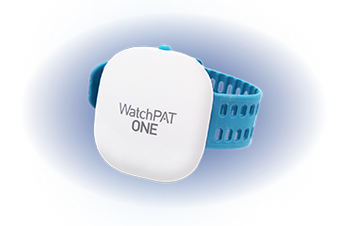Nasal CPAP Masks
Nasal CPAP masks send pressurized air through your nose while leaving your mouth free. Traditional nasal masks cover your entire nose, while some newer designs have a much lower profile, but both styles can be effective and comfortable.
-
ResMed AirFit™ N30i Nasal CPAP Mask
Sale price $ 11800Unit price per -
10% OFF
DreamWear Nasal CPAP Mask
Rated 4.8 out of 5 stars6 ReviewsSale price $ 8400Unit price per$9300Sale -
Philips DreamWisp Mask
Rated 4.5 out of 5 stars2 ReviewsSale price $ 7500Unit price per -
ResMed AirFit™ N30 Nasal CPAP Mask
Sale price $ 10500Unit price per
Nasal Pillow CPAP Masks
Nasal pillow CPAP masks use inflatable prongs that seal inside your nostrils while leaving the rest of your face free, making them the most minimalist of the CPAP mask styles. If you’re interested in the low-profile comfort of a nasal pillow mask, click the images below to discover our nasal pillow options.
-
Fisher & Paykel Nova Micro Pillows Mask
Sale price $ 9900Unit price per -
ResMed AirFit™ P30i Nasal Pillow CPAP Mask
Sale price $ 11800Unit price per -
ResMed AirFit™ P10 Nasal Pillow CPAP Mask
Rated 4.7 out of 5 stars3 ReviewsSale price $ 10500Unit price per -
9% OFF
Philips Respironics DreamWear Silicone Pillows CPAP Mask with Headgear
Sale price $ 9900Unit price per$10900Sale
Full Face CPAP Masks
Since full face and hybrid CPAP masks deliver pressurized air to both your nose and mouth, they’re the best choice for people who breathe through their mouth at night. Click through the images below to discover full face and hybrid CPAP masks with modern designs — including some that can be used by people who experience claustrophobia.
-
Philips Respironics DreamWear Full Face Mask
Rated 5.0 out of 5 stars2 ReviewsSale price $ 13500Unit price per -
Fisher & Paykel Vitera Full Face Mask with Headgear
Rated 5.0 out of 5 stars1 ReviewSale price $ 14900Unit price per -
Fisher & Paykel Evora™ Full Compact Face Mask - Fully assembled with headgear
Rated 4.0 out of 5 stars2 ReviewsSale price $ 14900Unit price per -
ResMed AirTouch ™ F20 Full Face CPAP Mask
Rated 4.5 out of 5 stars18 ReviewsSale price $ 15900Unit price per
Fit Packs
You can cut down on the stress of buying a new CPAP mask by choosing a fit pack that includes multiple cushion or pillow sizes. Also known as starter packs, fit packs are a popular choice for both new and experienced CPAP users.
-
DreamWear Nasal CPAP Mask - Fit Pack
Rated 4.7 out of 5 stars16 ReviewsSale price $ 10400Unit price per -
6% OFF
Philips Respironics DreamWear Silicone Pillows CPAP Mask with Headgear - Fit Pack
Rated 4.0 out of 5 stars1 ReviewSale price $ 10900Unit price per$11600Sale -
11% OFF
Philips Respironics DreamWear Full Face CPAP Mask with Fit Pack
Rated 4.3 out of 5 stars12 ReviewsSale price $ 16900Unit price per$18900Sale -
DreamWisp Mask Fit Pack
Sale price $ 7900Unit price per
AirMini Set Up Packs
The ResMed AirMini is an exceptionally popular travel CPAP machine, but one of its limitations is that it can only be used with a limited number of ResMed CPAP masks. AirMini Set Up Packs allow you to use otherwise incompatible ResMed masks with your ResMed AirMini.
-
8% OFF
ResMed AirMini™ P10 Mask Pack
Rated 5.0 out of 5 stars2 ReviewsSale price $ 16500Unit price per$17900Sale -
8% OFF
ResMed N30 AirFit™ CPAP Mask Fit Pack for AirMini™
Sale price $ 16500Unit price per$17900Sale -
-
9% OFF
ResMed AirMini™ N20 Setup Pack
Rated 5.0 out of 5 stars1 ReviewSale price $ 6200Unit price per$6800Sale
CPAP Mask Resupply Bundles
Stay on top of your therapy with hassle-free resupply options tailored to your needs. Shop 3, 6, and 12-month resupply bundles of our best selling masks.
-
15% OFF
ResMed AirFit™ P10 Nasal Pillow Mask Basic Resupply Bundle
Sale price From $ 17128Unit price per$20150Sale -
15% OFF
ResMed AirFit™ P10 Nasal Pillow Mask Deluxe Resupply Bundle
Sale price From $ 18998Unit price per$22350Sale -
15% OFF
Fisher & Paykel Vitera Full Face Mask Basic Resupply Bundle
Sale price From $ 21845Unit price per$25700Sale -
15% OFF
Fisher & Paykel Vitera Full Face Mask Deluxe Resupply Bundle
Sale price From $ 23715Unit price per$27900Sale























